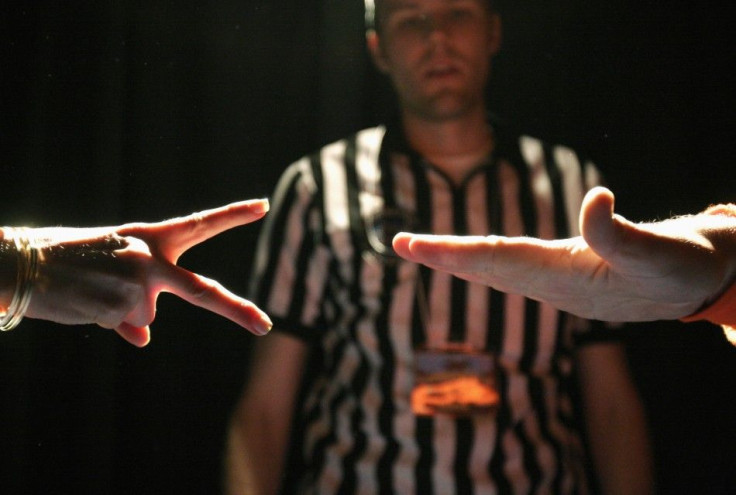Rock, Paper, Scissors: A Subconscious Copycat Game

Have you ever played rock paper scissors shoot vs. someone and it seems like every other time you and the opponent come up with the same symbols?
You're not alone. According to recent research published in Proceedings of the Royal Society B, players of rock paper scissors subconsciously copy each other's hand shapes. Researchers from The University College London used experiments to show how even in a scenario where drawing your opponent is equal to losing, players can't help but come up with the same symbol as their opponent.
In the study, researchers took 45 participants and placed them in two scenarios. In one situation, both opponents were blindfolded. In the other situation, one opponent was blindfolded while the other wasn't. To add on to that, the researchers promised a bonus to the player that won the most games in a 60-game match. This meant that if the players drew, they were really losing.
In the blind-blind chance test only a third of the games ended in a draw. When chance was eliminated and one player's thoughts were allowed, the number of draws went up significantly.
From the moment we're born, we are frequently exposed to situations where performing an action accurately predicts seeing the same action, or vice versa. Parents seemingly can't help but imitate the facial expressions of their newborns - smiling, sticking their tongues out and so on, said Richard Cook, lead author of the paper from University College London.
This experience causes the impulse to imitate to become so ingrained it is often subconscious, for example when one person starts tapping their foot in a waiting room it is not uncommon for the whole room to start tapping their feet without thinking.
He says for this automatic imitation to happen in rock paper scissors the sight of an action needs to excite the motor program for making that action almost instantaneously.
It is well established that imitative responses are executed faster than non-imitative responses on controlled experimental tasks where reaction times average between 200-400 milliseconds. However, the present finding confirms that imitation is often 'automatic' in the sense of being hard to stop, Cook said.
© Copyright IBTimes 2025. All rights reserved.





















